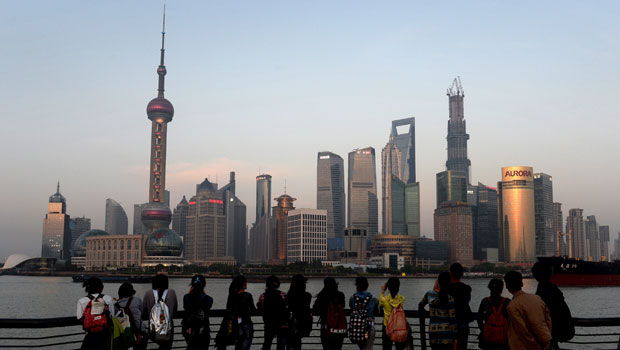Business
China’s Hotel Industry Struggles Amid High Youth Unemployment Rates

The hotel industry in China is facing significant challenges as a prolonged economic downturn affects domestic consumer spending. Following four years of economic decline, budget hotels are being forced to reduce their prices despite having full occupancy. This situation arises amid alarming unemployment figures, particularly among young people, with one in five Chinese individuals under the age of 24 currently out of work.
The economic struggles in China are prompting a reevaluation of business strategies in the hospitality sector. According to Asia business correspondent Peter Lewis, the reduction in consumer spending is directly linked to rising unemployment rates. He explained in an interview with Heather duPlessis-Allan that these factors are creating a challenging environment for hotels, especially those operating on tighter budgets.
Impact of Unemployment on Consumer Behavior
The unemployment crisis is not limited to the overall figures; it is particularly severe among younger demographics. With youth unemployment reaching a staggering 20%, many young adults are facing financial uncertainty, significantly affecting their ability to spend on travel and leisure activities. This decline in disposable income has led to a retrenchment in consumer spending, which is critical for the hotel industry, especially in a market that relies heavily on domestic tourism.
Hotel operators are adapting their pricing strategies in response to these economic pressures. Despite maintaining high occupancy rates, many budget hotels are cutting prices to attract customers who are increasingly cautious about their spending. This price reduction strategy aims to keep occupancy levels stable, but it raises concerns about long-term profitability.
Broader Economic Context and Future Outlook
The current situation in the hotel industry reflects broader economic challenges facing China. The economy has been struggling to regain momentum, marked by sluggish growth rates and declining consumer confidence. As the government seeks to stimulate economic activity, the hospitality sector is particularly vulnerable, as it is often one of the first to feel the impact of reduced consumer spending.
Looking ahead, the future of China’s hotel industry remains uncertain. Factors such as government policy, global economic conditions, and domestic consumer behavior will play crucial roles in shaping its recovery. For now, budget hotels are caught in a difficult position, needing to balance affordability with sustainability to navigate these turbulent times.
As the situation evolves, the implications for employment and economic stability in China will continue to be closely monitored. With youth unemployment being a critical issue, both the government and businesses may need to explore innovative solutions to address the underlying economic challenges.
-

 World1 week ago
World1 week agoPrivate Funeral Held for Dean Field and His Three Children
-

 Top Stories2 weeks ago
Top Stories2 weeks agoFuneral Planned for Field Siblings After Tragic House Fire
-

 Sports3 months ago
Sports3 months agoNetball New Zealand Stands Down Dame Noeline Taurua for Series
-

 Entertainment3 months ago
Entertainment3 months agoTributes Pour In for Lachlan Rofe, Reality Star, Dead at 47
-

 Entertainment2 months ago
Entertainment2 months agoNew ‘Maverick’ Chaser Joins Beat the Chasers Season Finale
-

 Sports3 months ago
Sports3 months agoSilver Ferns Legend Laura Langman Criticizes Team’s Attitude
-

 Sports1 month ago
Sports1 month agoEli Katoa Rushed to Hospital After Sideline Incident During Match
-

 World3 weeks ago
World3 weeks agoInvestigation Underway in Tragic Sanson House Fire Involving Family
-

 Politics2 months ago
Politics2 months agoNetball NZ Calls for Respect Amid Dame Taurua’s Standoff
-

 Top Stories2 weeks ago
Top Stories2 weeks agoShock and Grief Follow Tragic Family Deaths in New Zealand
-

 Entertainment3 months ago
Entertainment3 months agoKhloe Kardashian Embraces Innovative Stem Cell Therapy in Mexico
-

 World4 months ago
World4 months agoPolice Arrest Multiple Individuals During Funeral for Zain Taikato-Fox




















